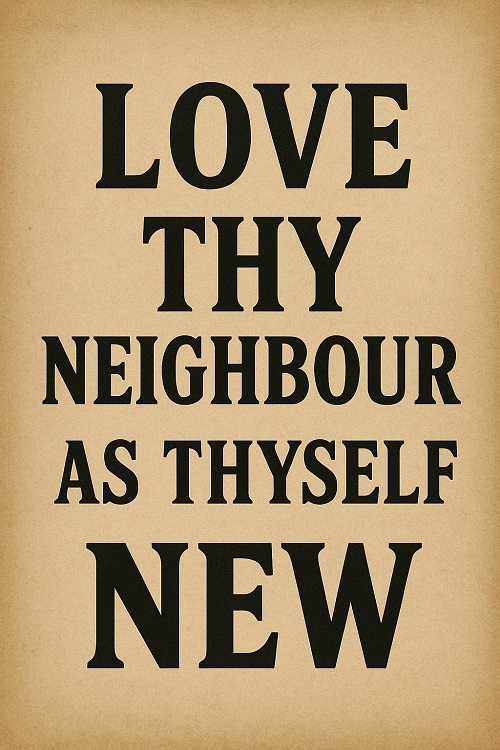This famous saying has its origin in the Jewish Commandments,
said to be revealed to Moses by the Lord and forming the creed of the
Jews and the Christians, all those who accept the teaching of the Old
Testament. Some of the commandments are negative, as Thou shalt not
k, and, considering that to avoid is easier than actually doing a thing
positively, the Commandment and such others as require on our part the
doing of something or the persistent attempt to give a particular turn to our nature must be more difficult to practise. Avoiding too is difficult, but,
when all is considered, it requires a less intelligent effort to avoid; but to
guide and shape one’s course of life requires understanding, planning and
constant watchfulness and acting. One must all the time be on the lookout
to be kind and charitable to others and seek occasions when one can prove
to one’s own satisfaction that one is not selfish or limited in one’s
affections. For, nothing short of this is the meaning of these words and
that will show how difficult it is to practise them.
Who is a neighbour’ as used in this connection? Not certainly
the
person living next door or living in the next street or in the next town
or village. If that were the meaning, the whole purpose of the moral
teaching contained in the saying would be defeated. Neighbour’ stands
for all mankind, for all who lives, breathe and exist. Love and sympathy,
charity and kindness are to be given to all, and not to be limited to one’s
family. tribe, race, nation or community. This is, therefore, an idealistic
utterance, calling upon us to shed our selfishness, pettiness and
partisanship and to make no distinctions. To lose oneself in others and to
lead a selfless life, that is its
support.
On account of its being an idealistic saying, it is impossible to
fully practise it. All that one can do is to realise its true meaning and
significance and to put oneself in the way of molding one’s life in
accordance with it. This is not a merely prudent saying, calling upon us to
do this or that because of some advantage accuring from it to ourselves.
There is no consideration of loss or gain entering here. We are not told to
love our neighbour in order that that may make him love us in return or
that in that way we will avoid conflicts with others. No such selfish
motives enter into it. This is a purely moral and religious attitude, calling
upon us to practise a noble ideal in the disinterested spirit of performing a
duty, without expecting anything in return. We may even be prepared in
practising this for disappointment, scorn and hostility. We must cast our
bread upon the waters, according to another noble Christian saying, and,
even though we may be left in the minority of one, we must keep the flag
of truth and goodness flying. What is advocated is a change of heart, not a
show of formal activity. So this love of others, in order to be real, must be
sincere, undemonstrative and disinterested.
